In the face of global challenges in 2020, we need to work more closely together to expose the roots of the problems and hidden truths while confronting climate emergencies. Read on to see how Greenpeace fights for our environment in Asia.
South Korea: Put pressure on Korea Electric Power Corporation
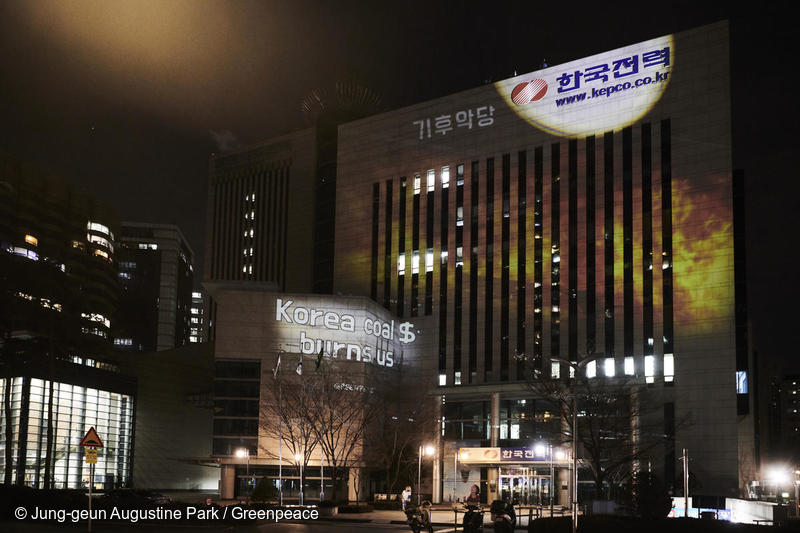
South Korea is the fourth-largest importer of coal globally, buying 30% of its fuel from Australia. Greenpeace Korea Office discovered that many companies, including the state-run ones, have invested in coal-fired power plants overseas, contributing to the climate emergency and Australia’s fires.
To urge Korea’s public and private sectors to work on energy transitioning, Greenpeace projects laser images on the outer wall of Korea Electric Power Corp.’s (KEPCO) office building, showing the investment categories and the dollars spent by the Korean government on fossil fuels leading to accelerating climate crisis and extreme weather conditions in Australia.
Thailand: 7 solar hospitals launched via crowdfunding
Greenpeace Thailand together with diverse civil groups founded the Thailand Solar Fund, creating crowdfunding campaigns to install solar rooftop panels in hospitals, reducing reliance on fossil fuels. The application of the Net Metering scheme for year 2020 is strongly advocated.
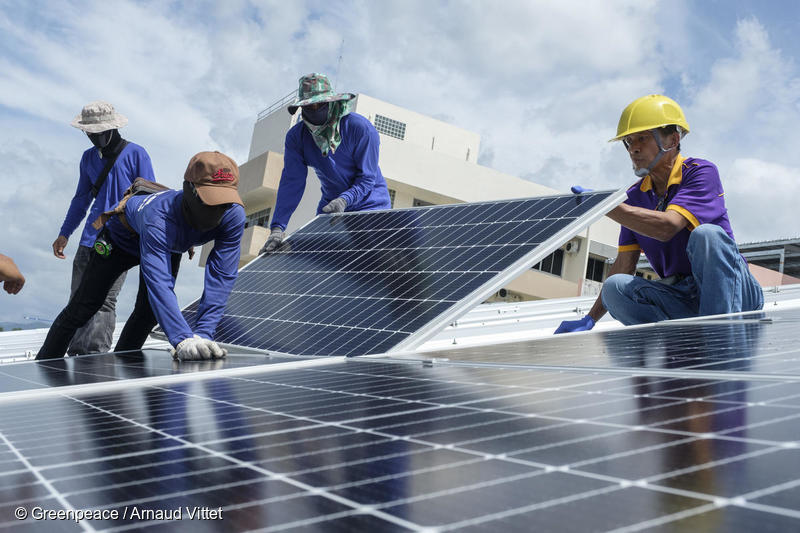
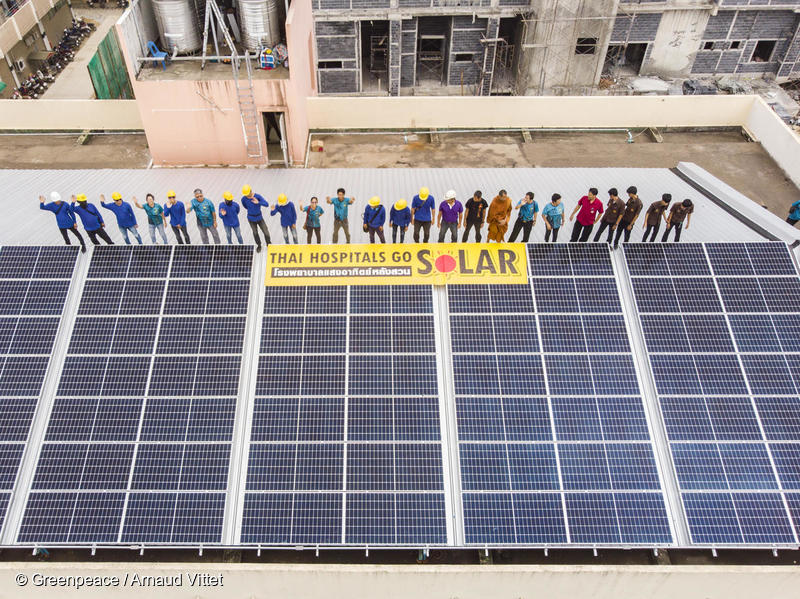
The investment in solar panel installation in hospitals will break even within five years. With the efforts of Greenpeace Thailand, seven hospitals, one after another, were transformed before January this year.
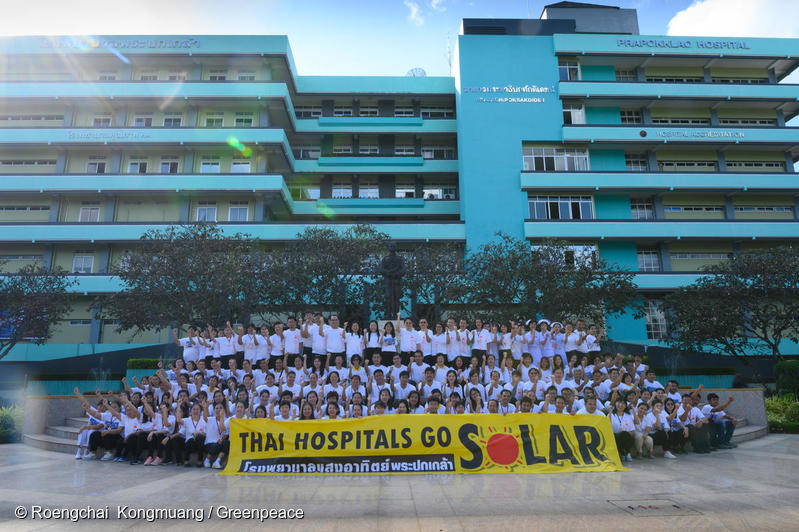
In 2019, the Ministry of Health, Thailand, resonated with Greenpeace’s commitment to providing practical solutions to energy transition by adding budgets for solar panel installation in three sectors: 882 national health centers, 131 regional hospitals and 39 hospitals supported by the Royal Family. It is encouraging to see the Government taking positive action.
Indonesia: Most deadly flood in 7 years in Jakarta
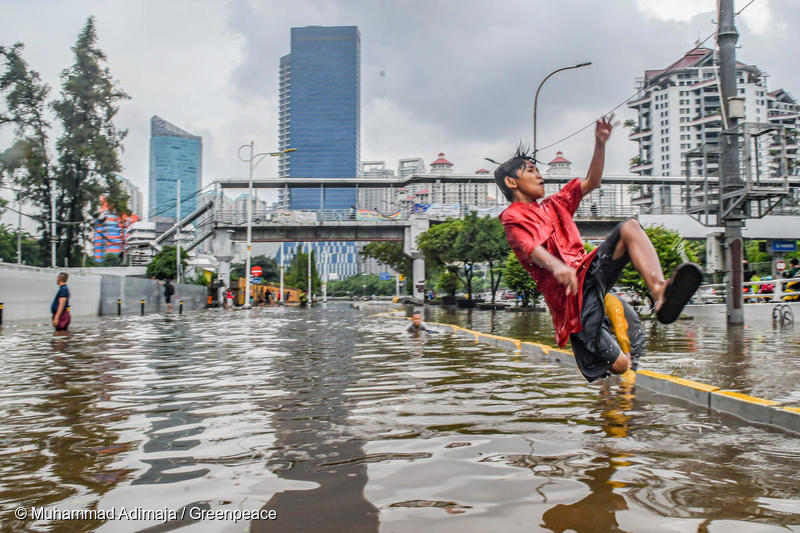
When the world was counting down to this new year, 2020, Jakarta welcomed a deluge of rain, killing 60 people and leaving 397,000 people homeless. Climate change is one of the big contributors of these extreme weather conditions. As the world’s fifth-largest greenhouse gas emitter, and top exporter of coal and palm oil, Indonesia fails in reducing carbon emissions and fuels the climate crisis instead.
Greenpeace Indonesia office organized a crisis response team to assist the evacuation. Greenpeace has long been committed to promoting climate justice issues to governments and enterprises in Southeast Asia. Rainforests, the carbon sinks, were protected through documentation and supervised supply chain.
We have received great feedback doing climate justice campaigns. In the future, Greenpeace will continuously make positive changes by working with people on climate issues, requesting governments and businesses to stop relying on fossil fuels and develop renewable energies instead.
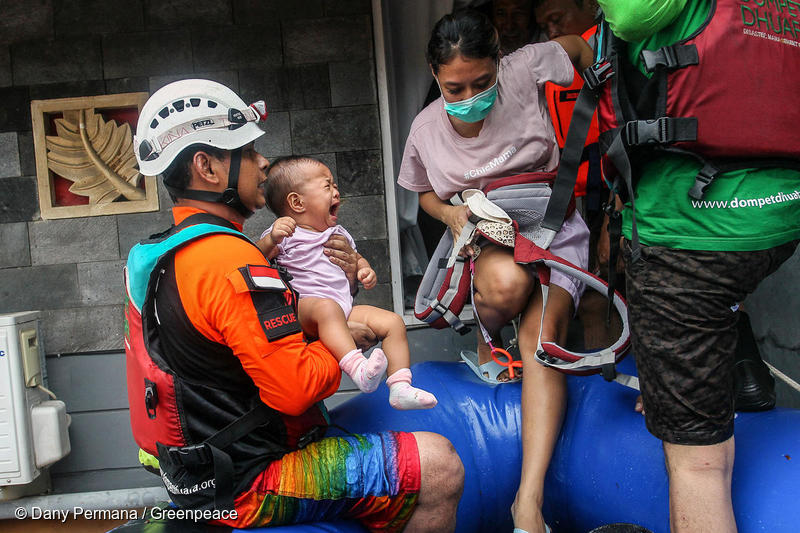
Let’s wish ourselves and generations to come a healthier and blissful future, a year of harmony between humans and nature. Take action and join us now! You can be part of the change!
